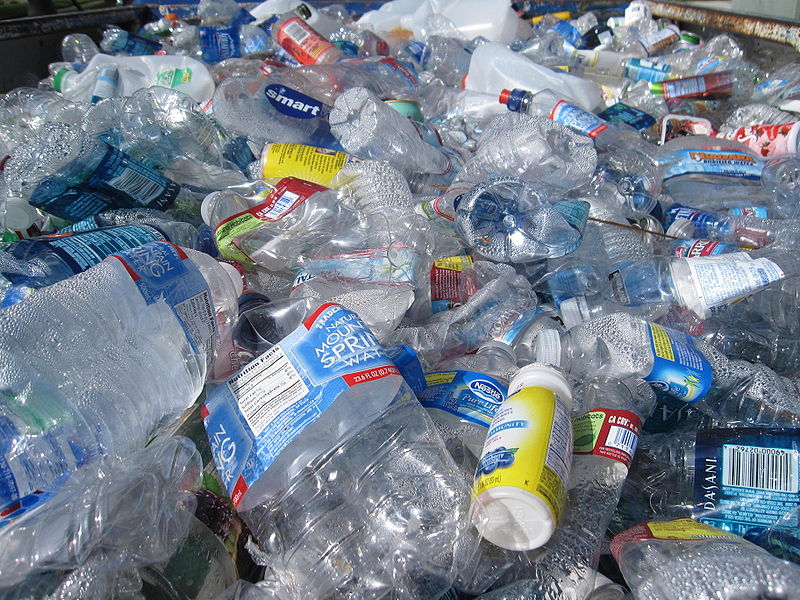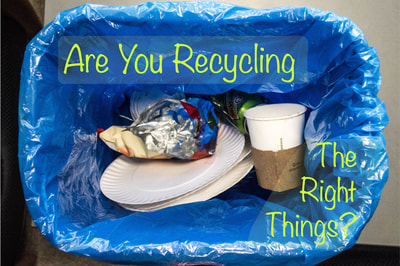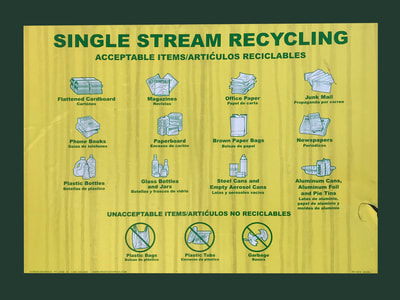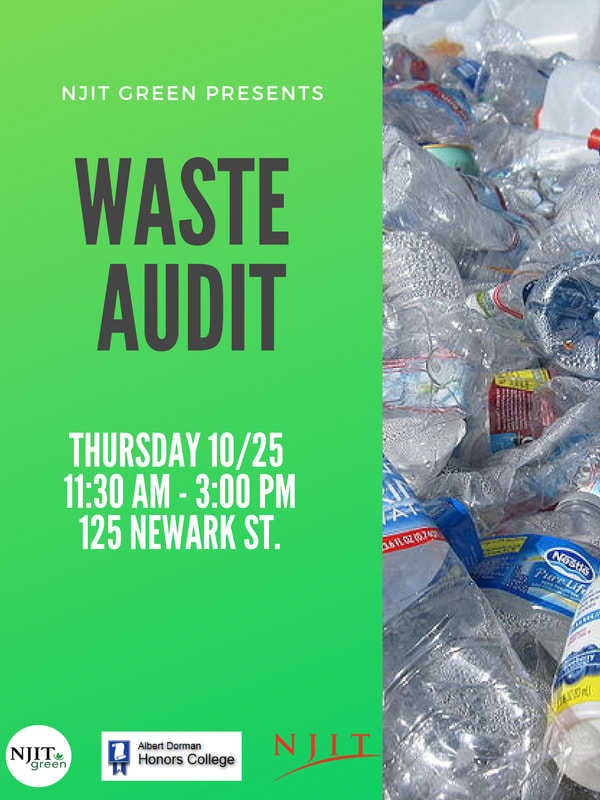|
By NJITgreen What is a Waste Audit and Why Are We Having One?A Waste Audit can be useful in understanding the disposal behavior of a given population over a period of time. First, Let's Discuss Waste The term “disposal” is broad, and can be broken down into various categories. “Waste” is anything that a community or individual has deemed unusable, and therefore placed in a receptacle for removal. “Recyclables” are materials that can be reprocessed and reformed to serve another purpose. The type of acceptable recyclables vary depending on the collectors. At NJIT, our recyclables are “Single Stream,” which means Paper, Cardboard, Plastic and Glass are all collected in one bin and later separated. “Compostables” refers to food waste that can be degraded to produce fertilizer or peat moss for use in gardens. “Landfill” is everything else, that is unsalvageable, unrecyclable, or a health hazard. When it comes to waste and waste management, our objective as responsible users of the environment should always be to have as little landfill waste as possible. Why Audit? Finding out, in numbers, the average amount of recyclable items that are being sent to landfills could be eye-opening for both students and school administration. We hope that by informing our population on what the composition of our landfill stream is, we can help raise awareness of some very unnecessary contributions to land fills, as well as bring people to think about trash cans and recycle bins, and what items should actually be going in them. NJIT uses a "single Stream" recycling method i.e. Paper, Cardboard, Plastic and Glass are collected together An audit at a mostly sustainable school may find that the majority of the landfill streams are in fact landfill, and not misplaced recyclables. The University of North Carolina at Chapel Hill, for example, showed that only 22% of their landfill streams in one of their residence halls were potential recyclables. It is expected, however, that NJIT has recyclables, food waste, and even perfectly useful items in landfill bins, as well as landfill-grade items. The reasons for this includes a general lack of recycling culture and responsibility for individual waste, as well as issues with receptacle availability. The data that will be collected at the waste audit can be published, used as an awareness tool, and used as benchmarks for progress in NJIT's recycling program. To learn more about UNC’s waste audit statistics click here Click here to see how Harvard did it
The waste Audit has been designed and planned by NJIT Green, sponsored by the Albert Dorman Honors College, and made Possible by NJIT’s Facility Services.
0 Comments
Leave a Reply. |
Details
WE WRITE FOR YOUNJIT Green is dedicated to keeping you informed on best sustainable practices on campus. ArchivesCategories |





 RSS Feed
RSS Feed